
Sub-programme leader: Prof Louis du Preez (Louis.DuPreez@nwu.ac.za)
Latest news:
The Culprit Behind the Extinction of the Kihansi Toad in the Wild
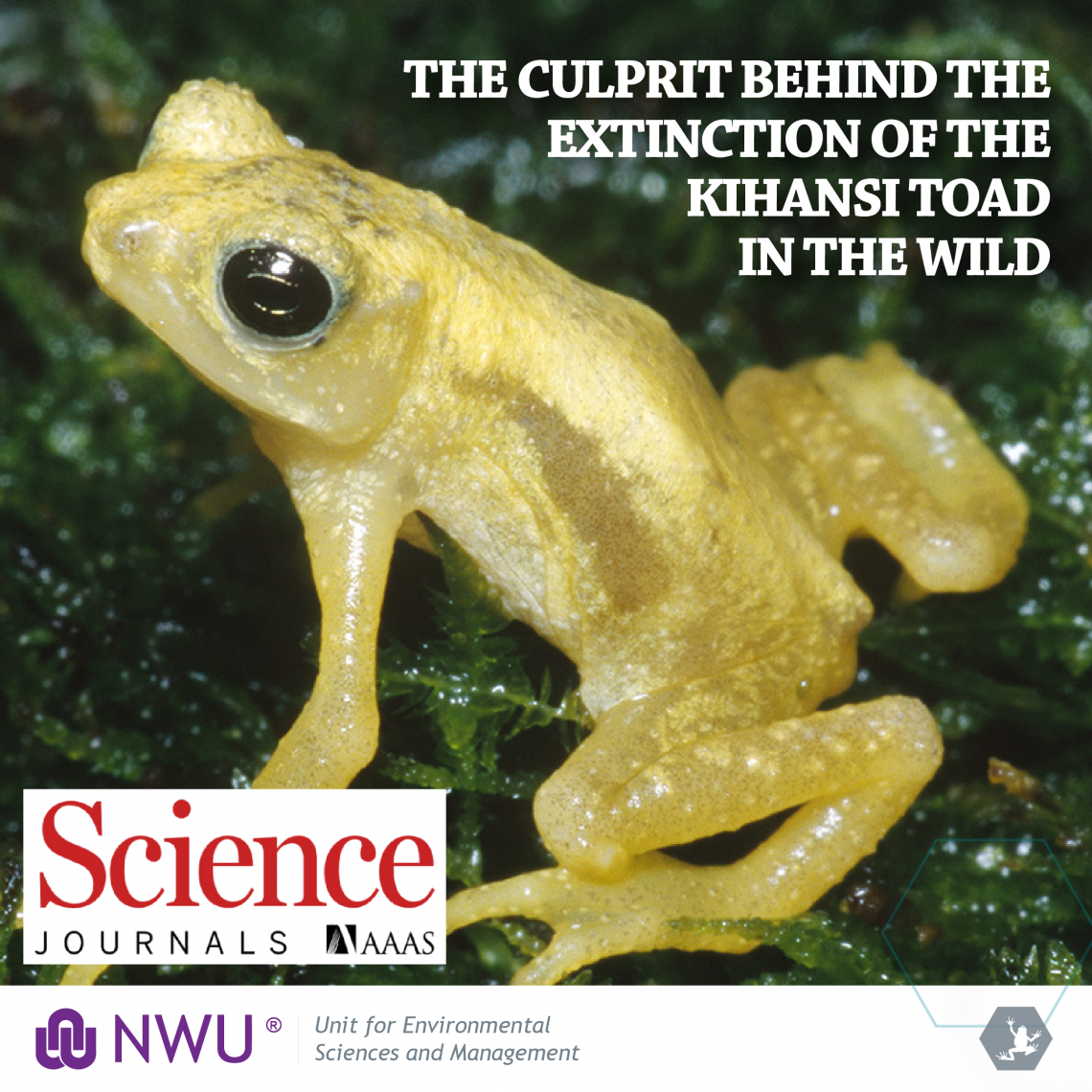 |
The Culprit Behind the Extinction of the Kihansi Toad in the WildSub-programme: Biodiversity and Conservation Ecology (BACE) Since emerging decades ago, the Batrachochytrium dendrobatidis (Bd) fungus has wreaked havoc on amphibian populations worldwide. A groundbreaking new study, featuring insights from our very own Prof. Ché Weldon, reveals that a previously underestimated strain of the fungus, BdCAPE, is responsible for the extinction of the rare Kihansi spray toad in Tanzania. Read article in Science here. Read article in Proceedings of The Royal Society B here. |
New Bullfrog Species - Beytell’s bullfrog, Pyxicephalus beytelli
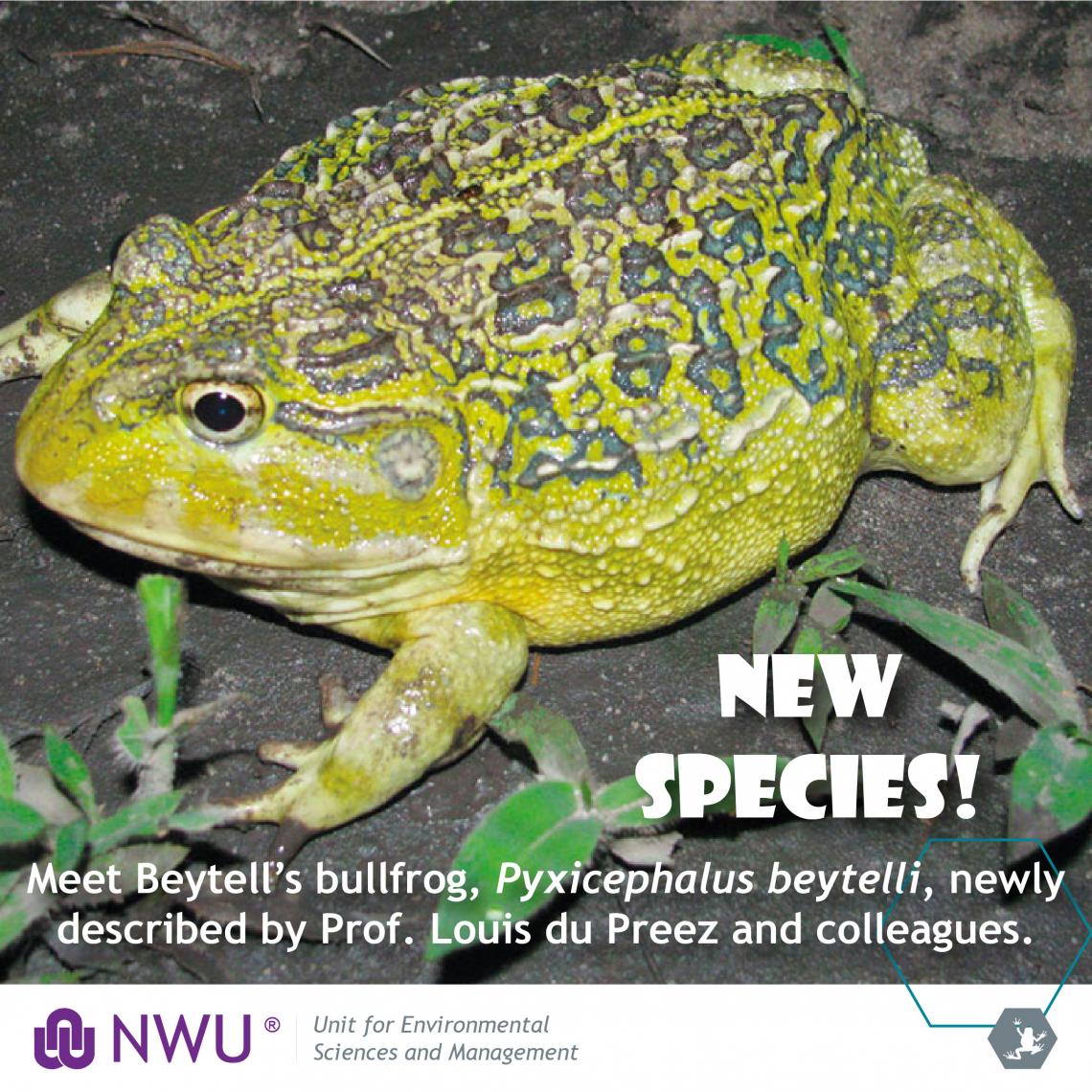
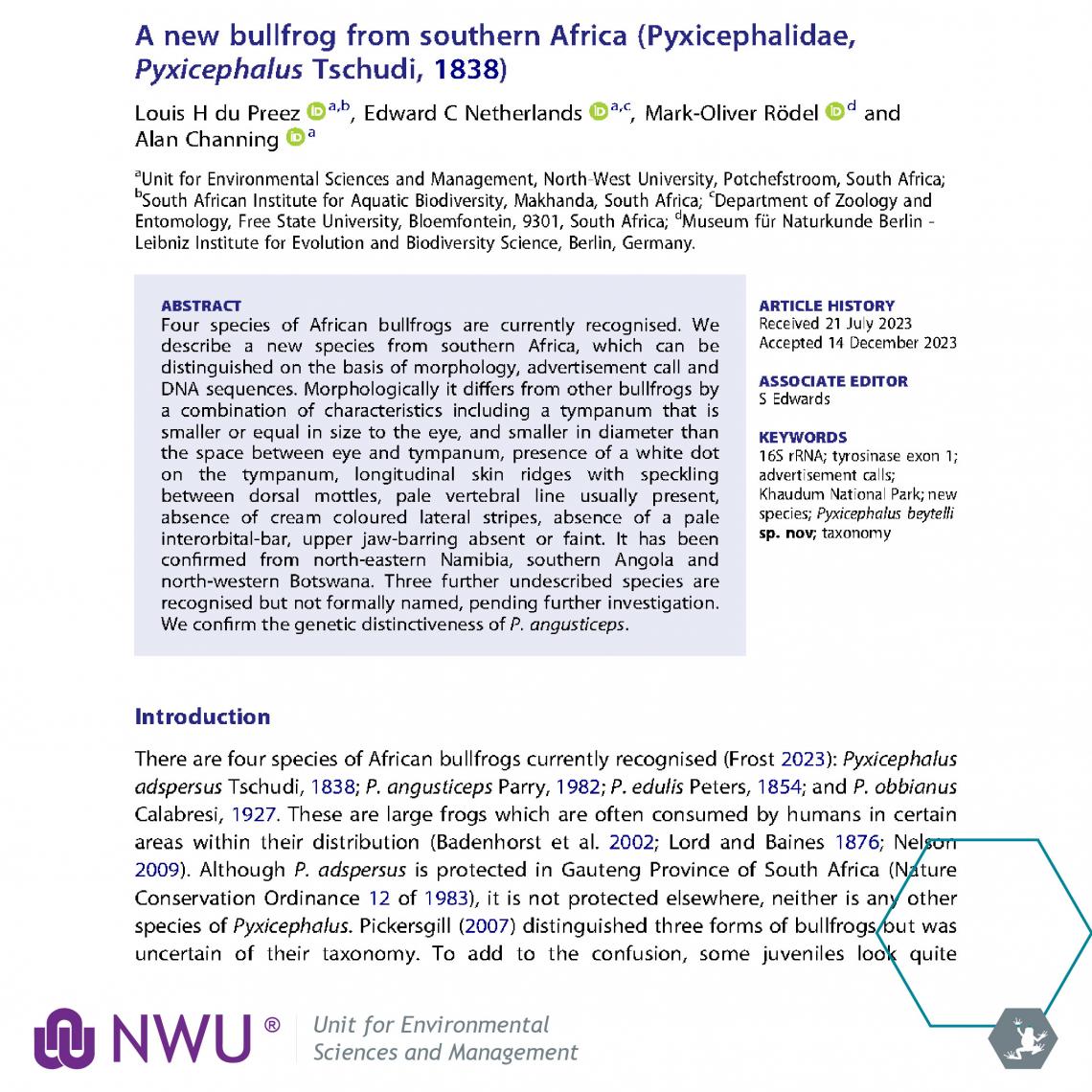
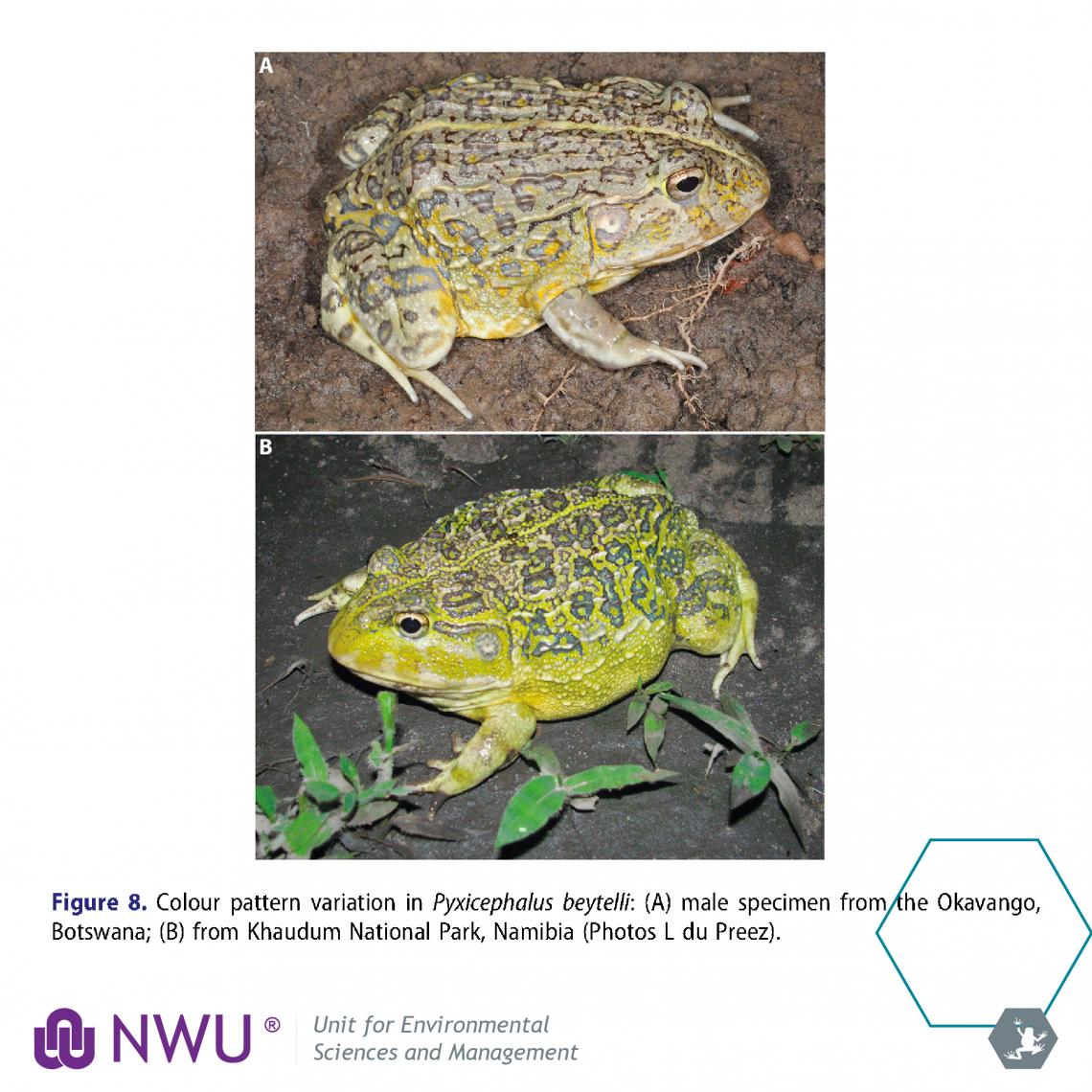
New Bullfrog Species - Beytell’s bullfrog, Pyxicephalus beytelli
Louis H du Preez, Edward C Netherlands, Mark-Oliver Rödeld, Alan Channing
Sub-programme: Biodiversity and Conservation Ecology (BACE)
Subject group: Zoology
Research group: African Amphibian Conservation Research Group (AACRG)
Congratulations to Prof. Louis du Preez and his team, for describing yet another frog species!
Link to article: https://www.tandfonline.com/.../10.../21564574.2023.2296654
Polystomatid Flatworms: State of Knowledge and Future Trends
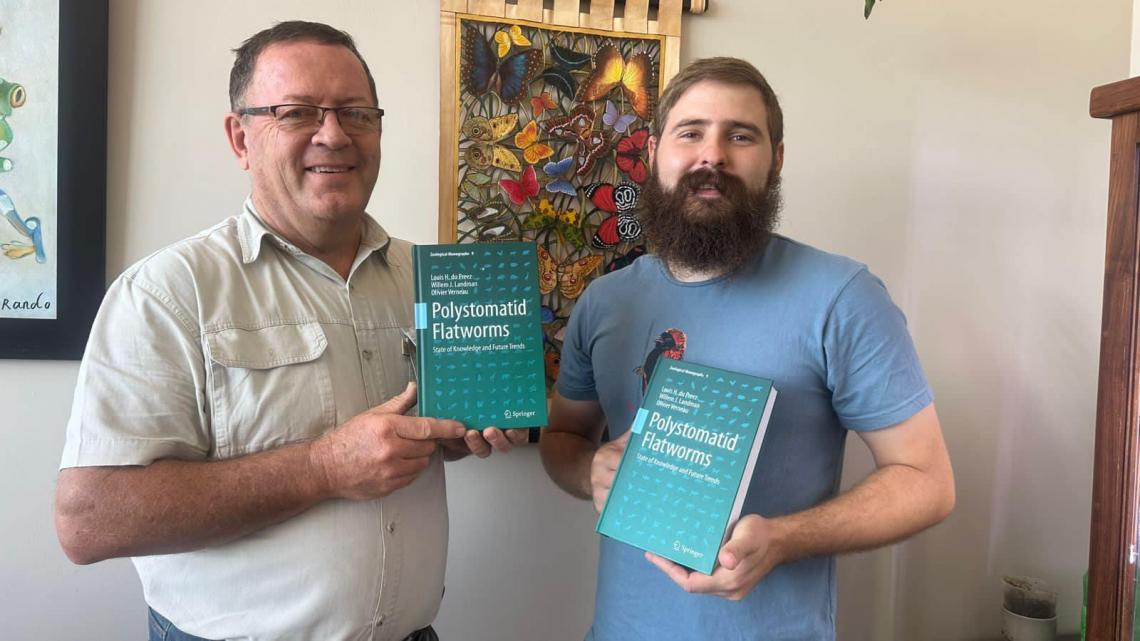
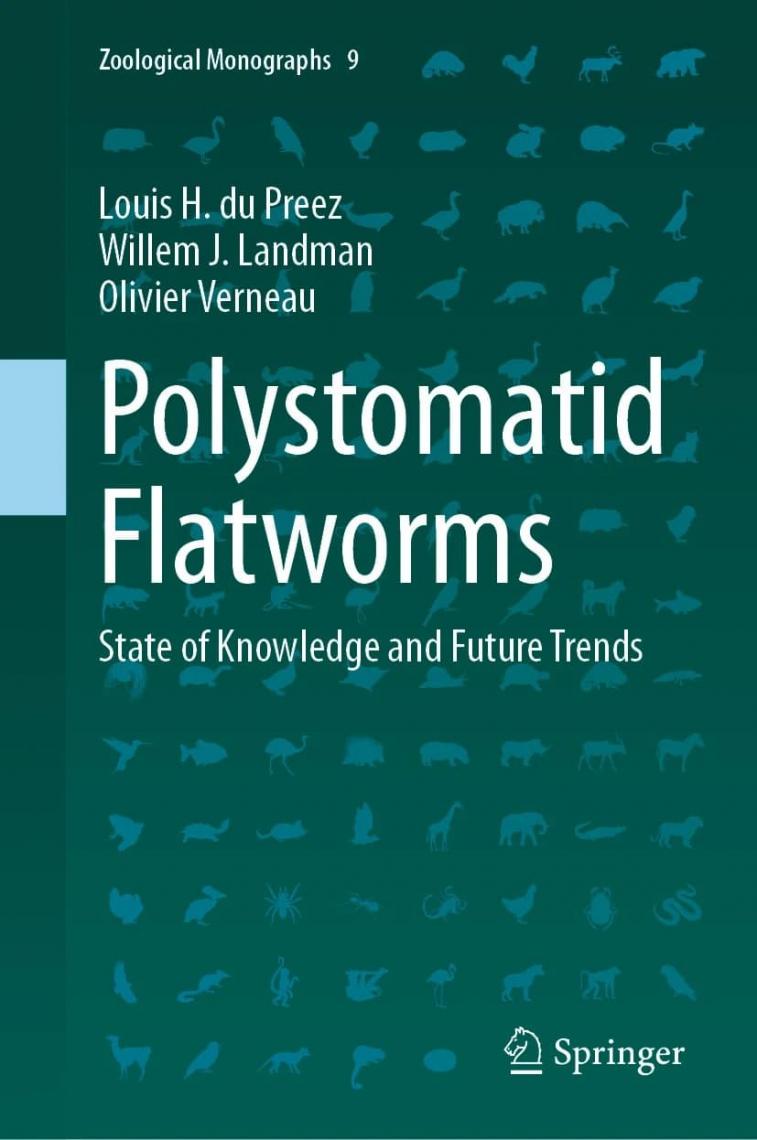
Polystomatid Flatworms: State of Knowledge and Future Trends
LOUIS H. DU PREEZ , WILLEM J. LANDMAN , OLIVIER VERNEAU
Sub-programme: Biodiversity and Conservation Ecology (BACE)
Subject group: Zoology
Research group: African Amphibian Conservation Research Group (AACRG)
Researchers from the Unit for Environmental Sciences and Management have released a comprehensive guide to Polystomatid Flatworms found in frogs and other animals.
AACRG Facebook Post: https://www.facebook.com/share/p/NZadrsXDtmsjArj3/?mibextid=oFDknk
Springer Link: Polystomatid Flatworms : State of Knowledge and Future Trends | SpringerLink
About Biodiversity and Conservation Ecology
Strategic Aim and Mission
Our vision for the BCE stream is to provide globally relevant, African-centred research and post-graduate training to improve the biodiversity knowledge, ecological understanding and conservation status of Africa's biodiversity.
Our mission is to develop human and institutional capacity through the pursuit of scientific knowledge of species and ecosystems, and to enable sound management decisions for the monitoring, mitigation and conservation of this unique asset.
Specific Focus
BCE does not limit its research focus to any geographical region, but in general aims its research at conservation problems in Africa. However, conservation problems are often of international interest and projects are therefore chosen and designed through international collaboration to include global significance. Conservation research is concerned both with the formal protected area networks as well as with the impact of threats on biodiversity within and outside of these areas. In addition, our experiences with solving conservation problems have recognised the importance of integrating information from a wide range of sub-disciplines if solutions are to be found. Ecology, systematics, biogeography, biomonitoring and experimental biology, as well as social sciences, are all important research fields required to attain informed and effective mitigation. We regard local, regional and international networks and partnerships as critical for the success of our research, education and social responsiveness programmes.
Research Objectives
Research Groups
Terrestrial Ecology (EcoRestore)
Led by Prof Klaus Kellner
Forb Ecology Research Group (FERG)
Led by Prof Frances Siebert
Herp Health Lab
Led by Prof Ché Weldon
Last updated: January 2024
